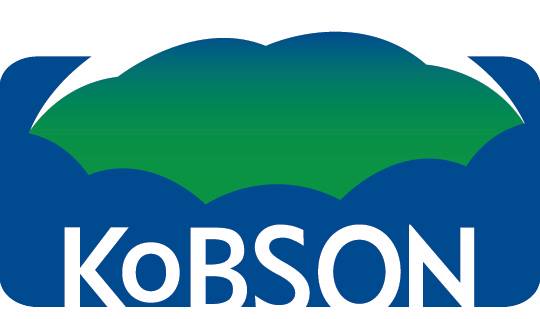DOI: 10.5937/jaes16-14953
This is an open access article distributed under the CC BY-NC-ND 4.0 terms and conditions.

Volume 16 article 495 pages: 36 - 42
Effective scheduling of the production process improves the operational effi ciency. The objective of the scheduling is to meet the due date, maximum utilization of resources, reducing work in process inventory and improving manufacturing lead time etc,. Scheduling in the multi objective criteria is the crucial task but necessary to achieve the better operational effi ciency in the competitive environment. When the complexity of the problems increases, it is the challenging process to obtain the optimum solution using mathematical or heuristic process alone. However application of genetic algorithm in scheduling process make easy to obtain the better and quick solution in the real environment. This paper uses the genetic algorithm for scheduling of jobs in the parallel machines production process. The algorithm is coded in MATLAB, and the objective functions are, minimum penalty cost, minimum machine idleness cost and combination of minimum penalty and machine idleness cost for comparison and discussion. The algorithm is tested for convergence, consistency and computational time.
Deb, K. and Miettinen, K. (2008). Multi-objective optimization: Interactive and evolutionary approaches, Springer Science & Business Media, Volume 5252.2.
Ghasem, M., & Mehdi, M. (2011). A Pareto approach to multi-objective fl exible job-shop scheduling problem using particle swarm optimization and local search. International Journal of Production Economics, 129(1), 14-22.
Joo, C. M. and Kim, B. S., (2015). Hybrid genetic algorithms with dispatching rules for unrelated parallel machine scheduling with setup time and production availability, Computers & Industrial Engineering, Volume. 85, 102-109.
Jos´e Elias C Arroyo and Joseph Y-T Leung, (2017). An effective iterated greedy algorithm for scheduling unrelated parallel batch machines with non-identical capacities and unequal ready times. Computers & Industrial Engineering.
Li, J.Q., Pan, Q.K., & Wang, Y.T. (2010). Hybrid Pareto-Based Tabu Search Algorithm for Solving the Multi-Objective Flexible Job Shop Scheduling Problem. Computer Integrated Manufacturing Systems, 16(7), 1419-1426.
Liu, Yang, Cheng, Xing, Lu, Zhao et al., (2012). Stated that fl ow job shop problem is an extension to traditional job-shop scheduling problem and usually has multiple optimization objectives.
M. Laumanns, L. Thiele, K. Deb and E. Zitzler, (2002). Archiving with Guaranteed Convergence and Diversity in Multi-Objective Optimization, Proceedings of the Genetic and Evolutionary Computation Conference, New Yourk, 9-13, pp. 439-447.
M. S. Osman, M. A. Abo-Sinna and A. A. Mousa. ITCEMOP, (2006): An Iterative Co-Evolutionary Algorithm for Multi-objective Optimization Problem with Nonlinear Constraints. Journal of Applied Mathematics & Computation, Volume. 183, No. 1, pp. 373-389.
Purushothaman Damodaran and Mario C V´elez-Gallego, (2012). A simulated annealing algorithm to minimize make-span of parallel batch processing achines with unequal job ready times. Expert Systems with Applications, 39(1):1451–1458.
Stefan Lausch and Lars M¨onch, (2016). Meta-heuristic approaches for scheduling jobs on parallel batch processing machines. In Heuristics, Meta-heuristics and Approximate Methods in Planning and Scheduling, 187–207. Springer.
Swamkar R, Tiwari MK, (2004). Modeling machine loading problem of FMSs and its solution methodology using a hybrid tabu search and simulated annealing-based heuristic approach. Robot Computer Integrated Manufacturing 20:199–209.
Tsung-Che Chiang, Hsueh-Chien Cheng, and Li-Chen Fu, (2010). A memetic algorithm for minimizing total weighted tardiness on parallel batch machines with incompatible job families and dynamic job arrival. Computers & Operations Research, 37(12):2257–2269.
Xing, L.N., Chen, Y.W., & Yang, K.W. (2009). Multi-objective fl exible job shop schedule: design and evaluation by simulation modeling. Applied Soft Computing, 9(1), 362-376.
Xu, X.L., Ying, S.Y., Wang, W.L. (2010). Fuzzy Flexible Job-Shop Scheduling Method Based on Multi-Agent Immune Algorithm. Control and Decision, 25(2), 171-184.
Zhang, G.H., Shao, X.Y., Li, P.G., Gao, L. (2009). An effective hybrid particles warm optimization algorithm for multi-objective fl exible job shop scheduling problem. Computers & Industrial Engineering, 56(2), 1309-1318.
Zheng, J.H. (2010). Multi-objective Evolutionary Algorithm and Application. Beijing: Science press.







